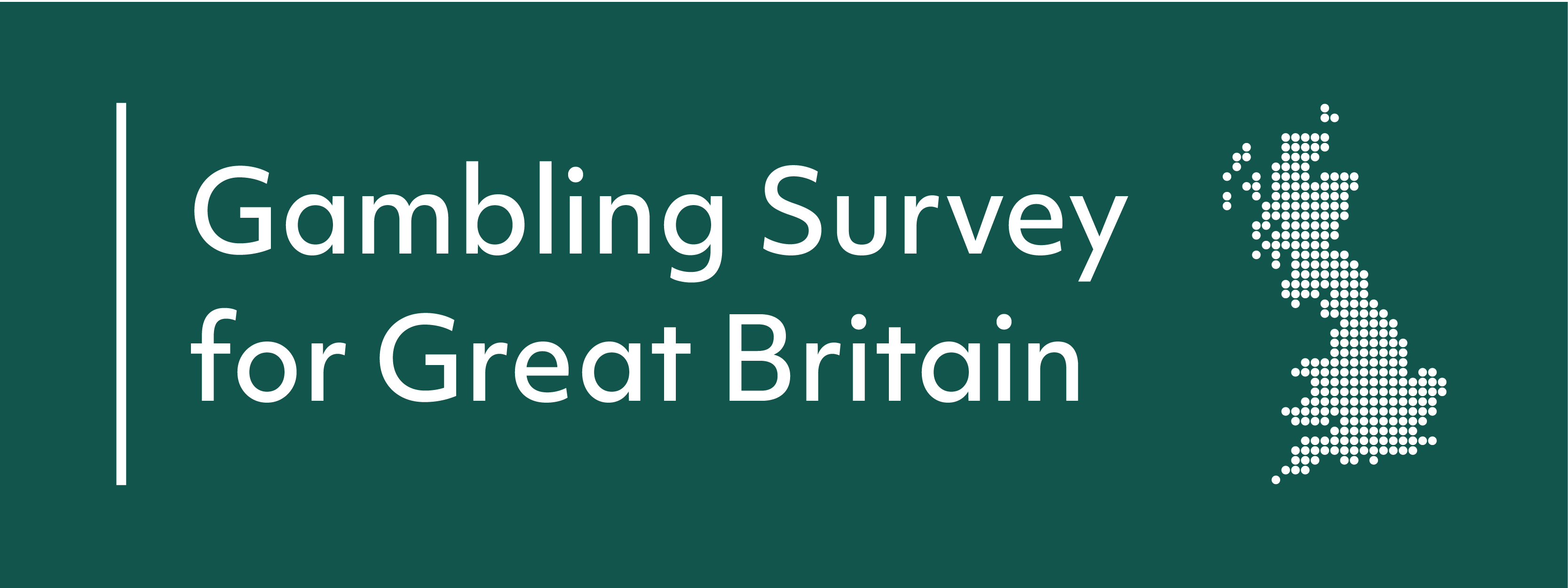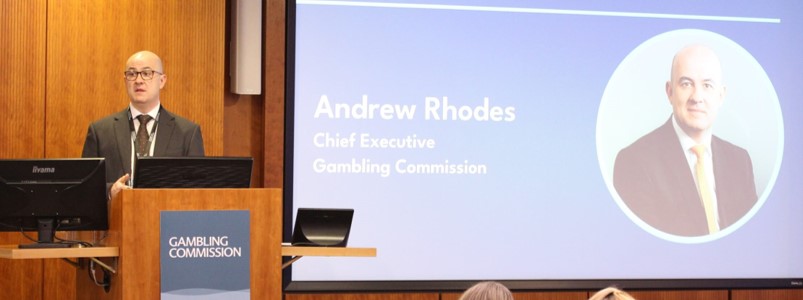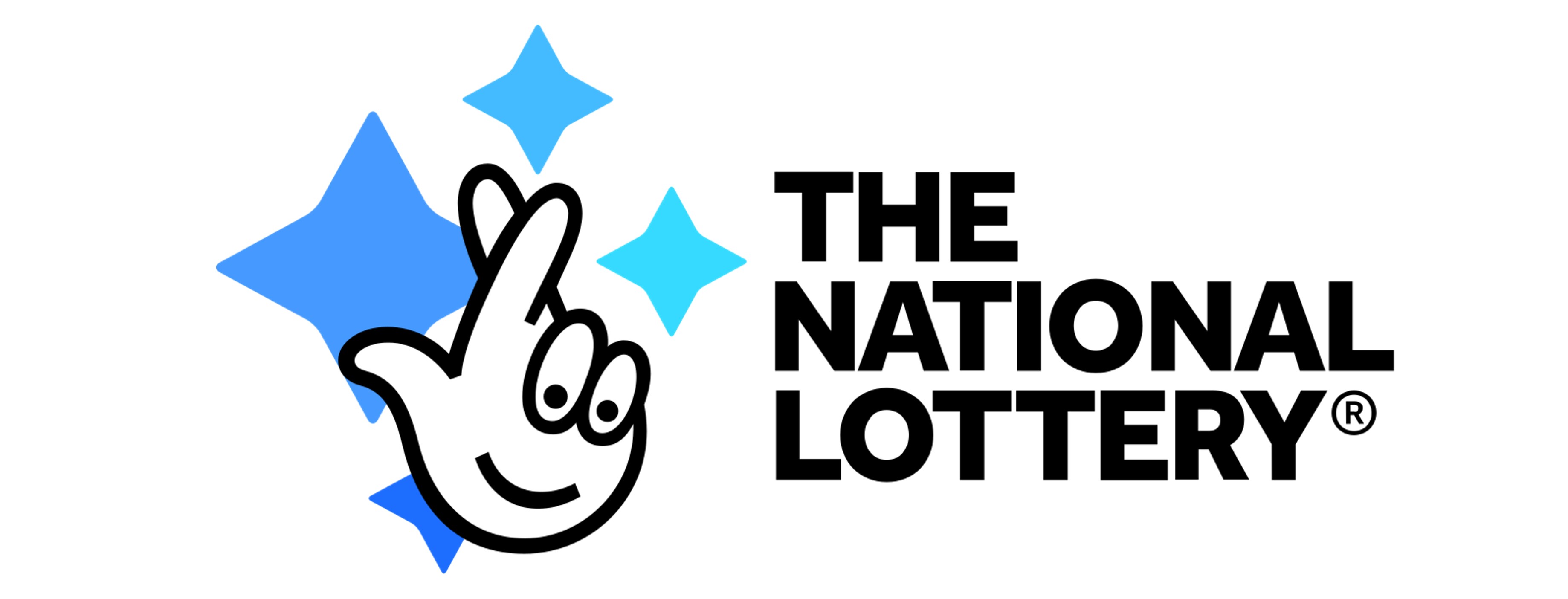- Print the full document
- Save the page as a HTML document to your device
- Save the page as a PDF file
- Bookmark it - it will always be the latest version of this document
This box is not visible in the printed version.
Corporate Strategy 2024 to 2027
The corporate strategy highlights the most important work we intend to deliver over the next three years.
Published: 8 April 2024
Last updated: 8 April 2024
This version was printed or saved on: 16 May 2024
Online version: https://www.gamblingcommission.gov.uk/about-us/guide/corporate-strategy-2024-to-2027
Overview: ## Foreword
Gambling consumers, the wider public and our licensees have a common interest in a gambling industry which is fair, safe and free from crime.
The way people gamble continues to evolve. People gamble in different ways, on different products and with different regularity. The global pandemic impacted the way people gambled and as a result our approach to regulation. Using comparable surveys, fewer people report gambling regularly now compared to before the pandemic, but consumers are collectively spending more money gambling than in 2019.
Below these headline trends, consumer behaviour and the individual commercial performance and drivers of our licensees differ. More people than ever before now gamble online rather than in person. An increasing proportion of consumers play higher risk products, and fewer use cash as a method of payment. In response, the gambling industry in Great Britain continues to evolve based on changes in consumer behaviour and changes to regulation. Licensees also continue to seek to influence consumer behaviour through product innovation and adapting their business models. Mergers and acquisitions have changed the structure of the industry, the scale of the largest businesses and their global footprint.
Throughout the pandemic we demonstrated our ability to react quickly and flexibly to unexpected and changing circumstances. We must retain that agility to keep pace with the industry and continue to improve our regulation for the benefit of consumers and the public.
The accelerating development of new technologies, increasing globalisation of gambling business models and the significant reforms to the regulation of gambling make this a transformative period for the industry. In this strategy we are committing to how we will transform to ensure we remain focused on making gambling safer, fairer and free from crime.
We have developed an ambitious strategy on two broad fronts:
Delivering on the decisions taken to bring about significant and lasting change to how gambling is provided, and the National Lottery is operated.
The Government’s White Paper High Stakes - Gambling reform for the digital age (opens in new tab) sets out a significant number of commitments to modernise the way gambling is regulated in this country and ensure it continues to strike the right balance between consumer freedoms and choice on the one hand, and protection from harm on the other. In addition, for the first time in its history there is a new Licence Holder for the National Lottery; and a changed regulatory regime to continue to deliver a successful National Lottery.
Investing in key areas to improve how we deliver our work for consumers, the public and licensees.
Targeted investment in priority areas will mean we can continue to regulate effectively in the future. That investment will be in our approaches, our systems, the evidence we rely on, and most importantly, our people. In this way we can ensure our regulation continues to reflect developments in the gambling industry with the ultimate aim to provide the best outcomes for consumers and the public.
Some significant areas of the strategy, such as work on delivering the Government’s White Paper commitments and the start of the Fourth National Lottery Licence, are already in progress. Improvements to the way we collect and use data are also underway and are fundamental to our work. We are clear that better evidence, driven by more effective use of data will lead to better regulation, which in turn will lead to better outcomes for consumers, the public and licensees. We plan to be even more transparent with our data and make public more information about our work.
We have identified where we can make improvements to our licensing, compliance and enforcement work to ensure it is as effective and efficient as possible and reflect the risks and opportunities of regulating in an increasingly digital age. We have also considered how we can pursue a positive longer-term direction of travel for gambling regulation as the industry’s approach to regulatory risk continues to mature. We intend to look at opportunities that exist for new regulatory approaches to build on the work outlined within this strategy, such as earned recognition, and we will be testing and learning what works and what does not.
All these actions will ensure that we improve the way we work to ensure gambling is fairer, safer and crime free for the benefit of consumers and the wider public.

Marcus Boyle, Chair and Andrew Rhodes, Chief Executive Officer and Commissioner
Corporate Strategy 2024 to 2027 Introduction
Introducing the Corporate Strategy (2 minutes, 12 seconds)
View a transcript of this video
We'd like to introduce you to our corporate strategy for 2024, our latest vision that will shape the future of gambling regulation in Great Britain.
This ambitious strategy takes us through to 2027 and will bring us closer to our vision for a fairer, safer and crime free gambling market.
We’re committed to helping ensure that consumers are protected and that the industry is supported to be compliant and crime free.
Over the next three years, everyone involved in, or with an interest of gambling from consumers, the public and our licensees will benefit from this important strategy.
We committed to making necessary change to how gambling is provided and regulated, delivering on our commitments from the Government's 2023 White Paper.
You've also already seen the launch of the Fourth National Lottery License, introducing a new license holder for the first time.
And that's not all. We've identified key areas where improving how we deliver our work can improve outcomes for consumers, the wider public and licensees.
Our focus for the next three years is clear. We're making better use of data and analytics to make our gambling regulation more effective, enhancing our core operational functions to provide best practice licensing, compliance and enforcement work, setting clear evidence-based requirements for licensees, being proactive in our approach and address potential problems at the earliest opportunity. And finally regulating a successful National Lottery.
We're not just reactive, we’re proactive addressing issues at the earliest opportunity. We're investing in tools, technology and skills in a new data innovation hub to improve the quality of the data we collect and how we use it.
We're working with regulatory partners from around the world to share and pool knowledge and look for meaningful solutions to tackle common problems like illegal gambling operations.
You can view and look through our strategy online and we will give feedback and advice to help us continue to improve and develop.
We look forward to working with all those with an interest in gambling who share our determination to ensure that gambling is fair, safe and free from crime.
The Gambling Commission (the Commission) is the national regulator of most forms of gambling in Great Britain. We license and regulate businesses, and key personnel within those businesses, who provide commercial gambling (excluding Spread-Betting). We provide advice to Government on gambling. We also regulate the National Lottery in the United Kingdom.
Gambling regulation in a digital age sets out our strategic direction for the next three years (2024 to 2027). It should be read alongside our business plans for each year of the strategy. We will report on our progress against the commitments made in this strategy in our annual reports.
Throughout this strategy we describe the actions we will take to ensure we are regulating in the public interest. This means:
- protecting consumers and the wider public
- maintaining public confidence in the gambling industry and the Commission
- ensuring proper standards of conduct and competence are upheld by licence holders.
Our statutory objectives and duties
The Gambling Act 2005 and the National Lottery Act 1993 set out the licensing objectives and National Lottery duties that shape our work.
As the gambling regulator, our aim is to permit gambling provided we think it is reasonably consistent with the licensing objectives to:
- prevent gambling from being a source of crime or disorder, being associated with crime and disorder or being used to support crime
- ensure that gambling is conducted in a fair and open way
- protect children and vulnerable people from being harmed or exploited by gambling.
As the regulator for the National Lottery, our statutory duties are to ensure that:
- the National Lottery is run with all due propriety
- participants’ interests are protected, and subject to those two duties
- proceeds from the National Lottery are as great as possible.
Delivering our objectives and duties
We summarise our objectives and duties in our vision:
We want a fair, safe and crime free gambling market where consumers and the interests of the wider public are protected.
This strategy will improve gambling regulation and move us closer to that vision. The following outcomes reflect our vision, regulatory role and remit. All of our work is ultimately aimed at helping deliver these headline regulatory outcomes. We will demonstrate our progress in delivering them by measuring and publishing impact metrics associated with each outcome.
Protecting from harm or exploitation
We work to ensure that:
- under 18 years old are unable to gamble on age-restricted products provided by our licensees
- vulnerable people are protected from gambling-related harm by effective regulatory requirements and compliant licensees.
Fair and open gambling
We work to ensure that:
- products and services provided by licensees are fair and deliver what they promise
- consumers are able to make informed choices about their gambling
- licensees ensure consumer issues are addressed fairly and promptly.
Preventing crime
We work to ensure that:
- it is difficult to provide illegal gambling at scale to consumers in Great Britain
- licensed gambling poses a low risk of money laundering and terrorist financing
- the integrity of betting markets and events with a footprint in Great Britain is high.
The National Lottery licence
We work to ensure that:
- all aspects of the National Lottery are run in a fit and proper manner
- the interests of every participant, playing, engaging or being exposed to the National Lottery, and every game, are protected
- returns to good causes are maximised.
What we are seeking to achieve over the next three years is set out under each commitment in this strategy. Delivering on the commitments will improve our performance in achieving the headline regulatory outcomes.
We will also publish a suite of operational key performance indicators to measure the outputs of our core regulatory work.
Together this performance measurement framework will improve transparency for the public and licensees, and guide our continuous improvement work.
Our performance measurement framework
Licensing objectives and National Lottery duties
A fair, safe and crime free gambling market where consumers and the interests of the wider public are protected.
Regulatory outcomes
Measured and published using impact metrics.
Strategy commitments
Delivered through annual business plans. Measured and reported using annual reports.
Operational key performance indicators
Publishing data on how we are delivering our core work.
Statutory Functions – our ‘core business’
We aim to work in a way that is transparent, accountable, proportionate, consistent, and targeted at areas in which action is needed.
We carry out a number of statutory functions that deliver the licensing objectives and duties. We set out our approach in our Statement of principles for licensing and regulation (this excludes functions related to the National Lottery).
Our statutory functions are to:
- licence operators and key individuals who provide gambling in Great Britain
- set requirements through licence conditions and codes of practice on how gambling is provided
- assess the compliance of licence holders
- enforce regulatory requirements and prosecute Gambling Act offences
- publish a Statement of principles
- advise the Secretary of State on gambling and gambling regulation
- issue guidance to Licensing Authorities.
Our statutory functions as regards to the National Lottery are to:
- grant the National Lottery operator licence
- grant game licences
- manage conditions on the National Lottery licence
- enforce the National Lottery licence.
These functions form our core business and continue to be the backbone of our work. This strategy focuses on what we will change and improve to achieve our objectives over the next three years.
Areas of Strategic Focus for 2024 to 2027

Alongside our ongoing core regulatory work, we have identified five areas of strategic focus where improvements to regulation can have the biggest impact in delivering better outcomes for consumers, the public and licensees. We have identified these areas based on our understanding of the gambling industry, and developments since 2021, including the award of the Fourth National Lottery licence and the commitments in the Government’s White Paper High Stakes - Gambling reform for the digital age (opens in new tab). They also reflect our experience of regulating including evidence from casework, consumer engagement, research, data and input from stakeholders including our advisory groups.
For the strategic period 2024 to 2027, we will prioritise the following five areas of strategic focus:
- Using data and analytics to make gambling regulation more effective.
- Enhancing our core operational functions.
- Setting clear evidence-based requirements for licensees.
- Being proactive and addressing issues at the earliest opportunity.
- Regulating a successful National Lottery.
Further details for each of these five areas of strategic focus can be found on the following pages in this guide.
1. Using data and analytics to make gambling regulation more effective

Better evidence, driven by more effective use of data will lead to better regulation, which in turn will lead to better outcomes for consumers, the public and licensees.
Rapid advances in technology provide opportunities to regulated industries and their regulators. In gambling, licensees can offer increasingly complex and sophisticated products and services supported by advanced data techniques. We need to understand them and be able to keep pace with changes to continue to regulate in the public interest.
We recognise that the public’s expectations of the use of technology and data is also shifting. The opportunities available to improve regulation must be balanced against the public’s expectations for effective, responsible and appropriate use of data. Licensees also expect our approach to remain consistent with our Statement of principles for licensing and regulation and the Regulators’ Code.
To meet these challenges, we are undertaking an ambitious data programme, investing in tools, technology and skills within a new data innovation hub to enhance our knowledge, improve the integrity of our data and make it more relevant to current issues.
All of this will be underpinned by a strong governance framework, making our data easier to access and use for multiple purposes.
We want greater automation of our systems and processes to improve efficiency, minimise regulatory burdens and enable us to direct more resources to our frontline regulatory activities. This in turn will make us more responsive to emerging issues and provide greater protections for consumers and the wider public. It will also help us to alert the industry at the earliest possible opportunity to potential risks to the licensing objectives.
Key Commitments
We will significantly increase the depth of our understanding of the gambling market and consumer behaviour.
Why? Acquiring operator data more regularly and additional consumer research during Covid-19 showed how we could identify, publish and react to market and consumer trends much faster. Embedding this capability is critical to understand the changes arising from the Government’s White Paper and to enhance our ability to deliver our statutory duty to advise on the gambling market. Our long-term aspiration is to link data to achieve a fuller understanding of how the industry operates and how it impacts consumers and the wider public.
As a result, we will make progress against our published evidence gaps and priorities. We will undertake a rolling programme of high-quality consumer research. We will also improve the data we collect from licensees which guides our work, and ensures we continue to provide authoritative advice and statistics on gambling in Great Britain.
Consumers, the wider public and licensees will benefit from our interventions being better targeted and based on the best evidence of the potential consequences of action. This is consistent with our aim to improve understanding of how our work impacts both consumers and industry, using data to identify what works and adapting regulation as necessary.
We will use data science methods to improve early identification of issues and our understanding of industry compliance.
Why? Using advanced analytics to spot patterns and trends across licensees, business models, and sectors, we can obtain a deeper understanding of industry trends and consumer behaviour. Improved insight on market trends is valuable, but we also want data to generate insight that leads to action where we can intervene to secure improvements for consumers at the earliest opportunity, based on an enhanced understanding of risk and issues in the market.
As a result, we will be able to improve our understanding of operator risk by having a wider range of new linkable data sets and analytical capability.
Consumers and the wider public will benefit from a reduction in the likelihood of sustained or significant failings going undetected and which result in consumer harm. Compliant licensees will benefit from targeted action against licensees who seek commercial advantage by failing to meet required standards.
We will build a leading understanding of gambling-related harm.
Why? We need a deeper and more robust understanding of who is suffering harm, when, why and on what products. Our long-term aspiration is to build a flexible, comprehensive and longitudinal view of people who are harmed, as well as why that harm occurs. This will identify past issues but also help predict where we can develop interventions to reduce the risk of harm arising in the first place.
As a result, a new Gambling Survey for Great Britain will provide high quality information about the gambling habits, attitudes and harms experienced across the adult population. This new survey triangulated with other research projects will enable us to better target our interventions and evaluate their impact detecting change within and between different consumer groups over time.
Consumers, the wider public and licensees will benefit from regulation and policy development being based on improved understanding from the Gambling Survey of Great Britain and other datasets. Our work will assist in raising collective understanding of gambling and gambling-related harm.
We will develop our internal capability to embed the effective use of data across all aspects of our work.
Why? To deliver our aspirations for this strategy we will need to ensure we pilot and adopt more data led solutions. This will include investing in people as well as in data storage and analysis.
As a result, we will improve our processes, how we set priorities, understanding what works and the robustness and visibility of our decision making. The processes and systems we currently use to manage our operation will be updated resulting in more effective use of data to improve performance across core financial, people and delivery metrics.
Consumers, the wider public and licensees will benefit from a more informed and efficient regulator able to target and intervene effectively on areas which present the greatest risk to a fair, safe and crime free gambling market.
We will collectively measure progress against these commitments by:
- assessing ourselves against the Government Data Maturity Framework
- auditing our data science capacity and capability on an annual basis, testing progress against our aspiration for improved promotion of data literacy and investment in data tools
- publishing regular updates on what has changed within the gambling sector, our views on future change and related risks and opportunities
- demonstrating how our understanding of our outcomes and our approach to evaluation has improved
- evidencing how our assessment of risk has improved via more timely, targeted and effective interventions.
2. Enhancing our core operational functions

The gambling industry continues to evolve and develop at pace. As the regulator, we must adapt and evolve so we continue to regulate effectively in the public interest. Over the next three years we will improve how we deliver our core operational functions. We will make the necessary investments to deliver best practice licensing, compliance and enforcement approaches. These core operational functions collectively drive the delivery of the outcomes we want for consumers, licensees and the wider public.
Key Commitments
We will evolve our licensing, compliance and enforcement work including improving our core processes, technology and related approaches.
Why? We must ensure that our approach to regulation evolves in line with industry and regulatory developments. This means developing our people and accessing new skills and expertise that reflect the challenges of regulating the British gambling industry in a digital age. Our core technology and systems are reaching the limits of their capabilities. By upgrading our technologies, systems and related approaches we will create efficiencies in the ways we work, freeing up resource to focus on the priorities that best serve consumers and the wider public. There is scope to automate more of our processes, making them quicker and simpler for consumers and licensees to navigate and improving our service as a result.
As a result, our processes, approaches and systems will be digital by default and provide a more responsive and automated experience for applicants and licensees.
Consumers and the wider public will benefit from our use of improved regulatory data to guide our work. That data will drive continuous improvement efforts and enable us to target our interventions on those issues which will have the greatest impact on the regulatory outcomes we are focused on delivering.
We will measure our progress by publishing and demonstrating improved performance against key operational performance indicators.
We will develop our approach to assurance including increasing transparency of industry compliance levels by theme and licensee.
Why? We undertake compliance activities to provide assurance that regulatory requirements are being met. This activity helps inform licensees about their performance and identify areas for improvement and good practice to ensure consumer interests are protected. We continuously look to improve our approach to follow and generate best practice in regulation. It is important that our approaches remain proportionate and deliver the best outcomes for consumers and the wider public. Increasing the transparency of compliance levels in the industry is one area where we consider progress is necessary.
As a result, we will start routinely publishing the findings from our work to assess compliance with our requirements relating to fairness, protection from harm and crime prevention in 2024. This initial step will not identify individual licensees but for the first time will provide a snapshot of our compliance findings. We will, subject to all necessary consultations, consider how the transparency of our compliance work can be improved beyond this initial step over the remainder of this strategy.
By the end of the strategy the gambling industry, including those who advise or are in a position to positively influence licensees, will be more aware of relative levels of compliance and better able to identify areas of good practice on which to build.
Consumers and the wider public will benefit from being more informed about regulatory requirements on the industry and our work to ensure licensees comply with our standards. They will also benefit from our improved ability to identify trends and themes across the industry in order to target our regulation to the greatest effect.
We will measure our progress by reporting on levels of industry compliance, building an initial benchmark and then demonstrating positive trends towards greater compliance.
We will increase investment, resource and capacity to tackle illegal gambling.
Why? Consumer access to illegal gambling undermines the regulatory framework and the protections it provides for consumers and the wider public. It threatens the licensing objectives and the National Lottery duties and is unfair for licensees operating legally. To address this, we require effective partnerships with the licensed industry and others. We must invest the necessary resource to ensure we have the capacity, capability and means to identify and undertake high impact disruption activity against illegal gambling operators targeting British consumers.
As a result, it will continue to be difficult to provide illegal gambling at scale to consumers in Great Britain. It is not possible to eliminate illegal gambling entirely given the nature of modern technology and the way criminal enterprises continue to evolve their approaches. We will, however, demonstrate how our increased focus and investment is resulting in high-impact and targeted interventions which collectively ensure Great Britain remains a difficult market to serve illegally.
Consumers and the wider public will benefit from increased activity to disrupt illegal operators and those who facilitate them in Great Britain. Consumers will be less likely to gamble with illegal operators who are not subject to our standards of consumer protection or the scrutiny and accountability that comes with a British gambling licence. Tackling illegal gambling will maximise the impact of the protections and regulatory measures applied to the licensed industry.
Licensees will benefit from action to prevent those seeking commercial advantage by operating illegally.
We will measure our progress by publishing metrics on the impact of our disruption activity and highlighting case studies. We will explore the availability of reliable proxies to help estimate the scale and risk posed by the illegal market in Great Britain.
3. Setting clear, evidence-based requirements for licensees

The Government published its White Paper High Stakes – Gambling reform for a digital age in April 2023. The White Paper sets the medium-term policy agenda for gambling regulation in Great Britain, and assigns us, as the gambling regulator, a significant number of commitments to deliver. These commitments are particularly focused on protecting consumers and the wider public from harm and will take up a significant proportion of our resources, including the majority of our policy resource over the next three years. As we deliver our commitments from the White Paper, we aim to ensure that our regulation is as clear and focused as possible, making it easier for licensees to ensure they comply with our standards at the earliest possible opportunity. This is consistent with the National Audit Office’s principles of effective regulation, the Regulators’ code and our own Statement of Principles.
Key Commitments
We will deliver those measures we are responsible for in the Government’s White Paper including improving player protections and product safety.
Why? The White Paper takes account of the changes to the gambling landscape since the 2005 Act was introduced, including the substantial development of online gambling. It sets out a package of reforms which reflect these changes, based on the latest evidence and informed by our advice. The Culture, Media and Sport Select Committee report on gambling regulation published in December 2023 provided additional parliamentary scrutiny of the proposals. The Government have asked us to lead on the delivery of a significant number of measures within the White Paper. We will consult on the use of our powers, to inform and implement reforms.
As a result, we will deliver on the Government’s ambition to ensure that gambling regulation in Great Britain remains appropriate, proportionate and effective in this digital age.
Consumers and the wider public will benefit from online gambling being made safer by design, by licensees marketing their products responsibly and being more proactive in preventing unchecked and unaffordable gambling that results in harm.
We will measure our progress by reporting on our progress in implementing those commitments within the White Paper we are responsible for. As part of our evaluation work we will support efforts by Government and others to evaluate the impact of the White Paper reforms.
We will increase our capacity to evaluate new requirements and policies.
Why? this will help us to understand which regulatory approaches have the most impact, and ensure we are able to adapt to take the more effective approach the evidence suggests. We will focus particularly on evaluating the impact of our work on the commitments we are responsible for in the Government’s White Paper.
As a result, we will be able to target our resources on the most effective policy interventions and demonstrate whether interventions are having the intended impact.
Consumers, the wider public and licensees will benefit from proportionate, and evidence led regulation which strikes an appropriate balance between offering greater protection for consumers and ensuring we impose the minimum burden necessary to deliver the licensing objectives.
We will measure our progress by publishing the results of our evaluation and research outputs and making changes to our regulation (subject to consultation) if appropriate.
We will review how we communicate our requirements and related guidance to licensees and the public.
Why? We want licensees and the public to have access to clear information, and guidance resulting in improved levels of understanding of regulatory requirements. Our Licence Conditions and Codes of Practice (LCCP) need to evolve further with the changes emerging from the Government’s White Paper. We want to ensure licensees fully understand their responsibilities, so they are compliant at the earliest opportunity. We also want consumers and other interested parties to be better informed of regulatory requirements and their rights, particularly in light of the Government’s commitment to introduce a gambling ombudsman.
As a result, we will identify opportunities to improve understanding of regulatory requirements engaging with licensees, consumers and others to make licensees’ responsibilities clearer.
Consumers and the wider public will benefit from licensees having a clear understanding of requirements and being able to hold those licensees to account for delivering them. Consumers and the public will also have a clearer understanding of their rights. Licensees will find it easier to comply which in turn will improve outcomes for consumers.
We will measure our progress by first establishing a baseline of current views and experiences of how we communicate our requirements and associated guidance. Where improvements are identified we will build in ways to evaluate these as part of this commitment.
4. Being proactive and addressing issues at the earliest opportunity

It is in the best interests of consumers and the public, as well as the industry itself, to secure the compliance of a licensee at the earliest opportunity. Over this strategy period we want to achieve that objective through more proactive activities and interventions with licensees rather than through reactive compliance and enforcement activity. We are clear this shift is only possible where licensees are making best endeavours to operate within the rules and with due regard for consumers and the public. Where they are not, we will continue to take decisive and escalating enforcement action.
Key Commitments
We will invest in a programme of activities exploring how licensees can be supported to meet their responsibilities to consumers and the wider public.
Why? Responsibility for complying with our regulations sits with the licensee. However, it is important that we use our expertise, influence and convening powers to assist licensees to meet their responsibilities towards consumers. By investing in engagement activities and events where we can communicate clearly with stakeholders and help identify and address shared risks or opportunities, we can raise collective standards of conduct and competence in the gambling industry and in turn raise confidence in gambling regulation.
As a result, licensees will have access to clear information and guidance. Licensees will be able to raise and be informed about emerging risks, opportunities or common issues to address within their businesses. The work will build on the existing engagement between us and licensees.
Consumers and the wider public will benefit from licensees complying at the earliest opportunity reducing the risk of harm, unfair outcomes or crime. Where it is appropriate licensees will be nudged into addressing issues which are impacting consumers promptly. The focus of our enforcement work will increasingly fall on persistent, serious and wilful non-compliance.
We will measure our progress through the number of licensees demonstrating clear understanding of standards and increased compliance rates. Reliance on formal enforcement tools to secure compliance will be reduced and be more focused on those who fail to comply.
We will increase the resource available to improve our understanding of issues which pose a risk to the fair and open licensing objective.
Why? Over the past few strategies, we have rightly focused a considerable amount of resource on addressing issues related to gambling-related harm and crime prevention. Having made significant strides in these areas, and without losing our focus on them, this new strategy presents an opportunity to invest further resource into identifying risks and opportunities relating to the fair and open licensing objective, and to the regulatory outcomes that link to this objective. Understanding consumer concerns, improving information to players and ensuring the fairness of gambling products are all key elements in improving consumer outcomes and consumer confidence from the low levels of trust currently reported.
As a result, by improving our understanding of what is important to consumers in this area, we will be better able to target our resources and, where necessary, any future regulatory activity. We will also be able to support the gambling industry to better understand where consumer interests lie.
Consumers and the wider public will benefit from regulatory interventions targeted at those issues which pose the greatest risk to the fairness and openness of gambling in Great Britain. Consumers will see positive changes in how licensees treat them throughout the different stages of their customer relationship.
We will measure our progress by identifying and reporting on key metrics such as consumer sentiment on whether gambling is fair and can be trusted, complaints about gambling, and licensee compliance with fair and open requirements. We will also use project or issue specific data or consumer research to determine the impact an intervention has had and whether it has addressed the identified concern.
5. Regulating a successful National Lottery

The National Lottery has become a fixture of British life since its first draw in 1994 and is one of the most recognised brands in the country. Through the returns it generates, it changes lives, both for the individuals who win prizes, and for the good causes who receive the funds that the National Lottery raises.
For the first time in the history of the National Lottery there has been a change in the licensee. There is also a new regulatory framework, an outcomes-focused approach enabling greater opportunities and incentivising more investment to keep the National Lottery relevant, future-proof and enduring for the benefit of the whole of the UK.
Our priority, in accordance with our core regulatory outcomes, is to uphold the National Lottery duties, which are propriety, protecting participant interests, and subject to both those duties, ensuring the maximisation of returns to good causes.
A successful Fourth National Lottery licence is paramount to achieving these outcomes, as is evaluating and learning from the licence competition to inform future competitions.
Key Commitments
We will complete our oversight and assurance of the transition to, and implementation of, the Fourth National Lottery licence.
Why? We will hold the licensee to account and ensure the integrity of the competition outcome. This will enable us to make evidenced and risk-based decisions relating to the licensee’s performance and inform our approach to regulation under the new outcomes-focused licence framework.
As a result, our dedicated Fourth National Lottery licence programme will provide robust oversight, engagement and assurance of the licensee’s delivery of their application during the implementation period. We will also maintain a governance framework to ensure agile and effective management of the programme.
Consumers and the wider public will benefit from the improvements to the National Lottery possible through the delivery of the application commitments and outcomes.
We will measure our progress through a combination of activities including managing risks and issues, monitoring delivery of the application commitments and outcomes, and defining key milestones to ensure consistency and quality of submissions are maintained to support positive outcomes.
We will embed our regulatory approach to the Fourth National Lottery licence.
Why? This will help us to realise the strategic objectives of the Fourth National Lottery Competition regarding high standards of propriety, a strong focus on participant protection, maximising good causes contribution and growing the value of the National Lottery as an asset. It will also help us to capitalise on the benefits of moving to a new outcome based regulatory framework.
As a result, the licensee will have more freedom to innovate and use its commercial judgement but also greater responsibility and accountability for its performance and delivery against outcomes. We will be able to hold the operator to account, via the regulatory framework, ensuring its performance during the licence period is better aligned with the strategic objectives.
Consumers will benefit from the innovation opportunities that the new licence offers the licensee, whilst player protection is maintained and improved. The wider public should benefit from increased returns to good causes across the licence period.
We will measure our progress through a number of activities, including understanding the operator’s approach for putting the assurance model set out in the licence into operation. We will also assess the licensee’s performance against each of the duties to ensure that performance does not diminish under the operation of the new licensee.
We will assess how well the benefits from the new licence arrangements are realised.
Why? The award of the National Lottery licence is a significant, high-profile decision taken by the Gambling Commission. We therefore need to be able to understand and demonstrate whether the impact of that decision is in line with our expectations.
As a result, we will be able to provide the public with confidence in the competition process and outcome, while demonstrating that each of our statutory duties are being delivered to the level that was anticipated through the licence award.
Consumers and the wider public will benefit by having confidence in the competition outcome, knowledge that the National Lottery continues to be run safely and with all due propriety, and that returns to good causes are being maximised.
We will measure our progress through a range of qualitative (for example, the proportion of the licensee’s bid which has been implemented) and quantitative (for example, levels of returns to good causes) measures which will be determined during the early part of the Fourth National Lottery licence period.
Cross-cutting enablers

Delivering on the commitments within our five areas of focus, as well as our core regulatory functions, is dependent on a number of cross-cutting activities that underpin all of our work.
People
We will develop and implement a people strategy to enable the delivery of the corporate strategy. The people priorities that will be addressed within the strategy period include:
- to build and recruit the right combination of skills and capabilities
- to enhance the employee offer, to attract and retain talent
- to build the capability of leaders and managers
- to embed inclusion into our everyday work.
Why? Our most important asset is our people. To deliver our strategy we will need to continuously improve, and we will do this by further increasing the engagement of every colleague and improving our organisational effectiveness. We aim to be a first-class regulator that attracts, recruits and retains diverse and talented people who are able to realise our ambition of making gambling fairer, safer and crime free.
As a result, we will maximise the potential of our existing people enabling us to retain key skills and expertise whilst also attracting new and diverse talent into the organisation. We will retain the necessary knowledge and skills to support those we regulate, including having an understanding of the gambling market and regulation, enabling us to implement proportionate and effective approaches to help make gambling fairer, safer and crime free.
We will measure our progress through a range of indicators including our annual and regular pulse surveys, retention and turnover rates, and diversity representation.
Effective stakeholder engagement
Our role as a regulator requires effective ongoing dialogue, and we are committed to a programme of stakeholder engagement to support our work and explain our decisions. By having open conversations, we can better understand how best to make gambling fairer, safer, to keep crime out of gambling and regulate a successful National Lottery.
We will build on our existing approach to ensure we are engaging with a wide range of stakeholders. The modern gambling industry is international in nature and uses a wide range of technology and techniques to advertise and deliver its products. That means we must work with other regulators and partners both domestically and internationally and use our standing to achieve shared regulatory outcomes on behalf of consumers and the wider public.
We want to understand and be responsive to the experience of consumers gambling with our licensees and affected others. We want to maintain and build effective relationships with industry – licensees, trade bodies and service providers. We want to hear from those in the third sector and to sustain open dialogue with parliamentarians raising issues on behalf of their constituents. And we want to learn, experience and engage with those whose expert insights can help shape and inform our approach, while also sharing information and insights with others in an open, authoritative and timely way.
Our work will include:
- flagship events such as CEO briefings and conferences
- meetings and visits with licensees, land-based venues, National Lottery distributors and National Lottery funded enterprises
- international collaboration through curating and leading regulatory forums and conferences along with building meaningful partnerships through meetings, agreements and joint activities
- parliamentary engagement with MP's, All-party Parliamentary Groups and Select Committees
- continuing to access and use the inputs of expert groups across digital, lived experience, safer gambling and industry.
Why? Effective engagement with the wide range of domestic and international stakeholders with an interest in gambling and its regulation is important to ensure that we are accountable, properly balanced and informed in our work. It is an important aspect of the Regulators’ Code and therefore guides our approach.
As a result, our approach will provide for early, regular and meaningful engagement with licensees, and other key stakeholders focused on improving outcomes for consumers and the wider public.
All parties including consumers and the wider public will continue to be invited to contribute to public consultations on major initiatives or proposed regulatory changes. Our consultations will be clear and open as to their purpose, allow a reasonable period for comment, and result in a published substantive response.
We will measure our progress of our work over the strategy period through feedback, discussion and insights.
Resources
To deliver our work efficiently we need to ensure we continue to have sound financial management policies in place and which we strictly adhere to. As a public body, we operate in accordance with Government and Treasury guidance on accounting and financial control procedures.
To deliver the commitments in this strategy we will set and agree budgets annually and target additional investment in our areas of strategic focus. Our budgets will benefit from the improvements made to our approach to forecasting income, revenue expenditure, and capital expenditure and the resultant management of reserves and cash.
Alongside our work to maximise our financial approach within the limitations of the current funding model we welcome the Government’s commitment to replace the current requirement for the Secretary of State for Culture, Media and Sport to review and specify each Gambling Act 2005 licence fee in secondary legislation.
We will work with the Department for Culture, Media and Sport to deliver their proposals to reform our funding framework.
Why? The Government’s White Paper outlined an intention to change the system for setting our fees, from the current requirement to consult and lay a statutory instrument, to an annual process where we will consult on our proposed fees for the following year and set out how this money will be spent.
The White Paper commitment was subsequently endorsed by the Culture, Media and Sport select committee report on gambling regulation published in December 2023.
As a result, a revised funding system will enable us to adjust our fees on an annual basis where necessary, increasing or reducing as appropriate, so our overall income remains at the right level to respond to challenges, cover the cost of regulation and allocate those costs fairly between licensees as is the case with other regulators.
Consumers and the wider public will benefit from an efficient regulator appropriately resourced to pursue the licensing objectives, with the additional flexibility to meet the challenges posed by an evolving gambling market, illegal gambling and boundary pushing products.
We will measure our progress by demonstrating that our current levels of reserves are reducing, and that we have a sustainable financial plan in place to manage our funding over the period of this strategy. This includes producing detailed annual financial plans in conjunction with our annual business plan for each year of the strategy.